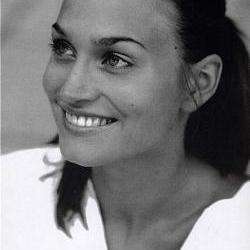Honestly, the most stressful thing about this entire experience was watching them get to their seats. As soon as powerhouse octogenarians Martha Argerich and Zubin Mehta had negotiated their way across the stage, weaving between stands and bodies, and were settled into their respective benches, there was not a care in sight. Both led the Vienna Philharmonic in their inimitable fashions through major works in duo matinées at the Musikverein in Vienna over the weekend.
As someone who grew up in church, there is something about a Sunday matinee in a golden temple – which is exactly what the Golden Hall of the Musikverein is fashioned after – that feels sacred to me. I cannot entirely shake it: a combination of the ushers, the programs, the upscale dress code, the hallowed silence and general reverence. Ravel’s sexy Piano Concerto in G major feels a bit surprising at the stroke of noon in this context – it seems more a smoky night-owl of a composition. The mercurial work, a blend of edgy virtuosity, color, jazz and French élan, is hardly church-ready with its surprising whirls, meter shifts and seductive flights of fancy. However, performed authoritatively by Argerich, who feels it from her core, nobody was complaining. From the opening whip crack, she was off the races and the Philharmoniker (for whom this is hardly core repertoire) for the most part kept up admirably.
Argerich’s clarity of articulation, dexterity and purpose have not faded with time, and although I have heard quicker tempi from her in the bookend movements, the performance never lagged. She worked through the solo sections in the middle movement like they were chamber music, inviting her compatriots into the experience, and ended with a flurry and a bang of iron fingers. In a nod to practice from a previous century, instead of offering exclusively new works for the encores, the first work to follow ecstatic applause was a reprise of part of the third movement, which allowed the orchestra to feel more like they were leading the charge instead of subsumed by it. The second encore – solo Bach, the pair of Gavottes from the Third English Suite – was precisely characterized, saucily effortless and absolutely perfect.
Bruckner is much more the Philharmoniker’s wheelhouse and there is much to love about the Seventh Symphony, especially in the hands of this orchestra and conductor. Zubin Mehta, still scoreless, has a genuine plasticity to his gestures, which were minimal but never missed their mark. Even seated, his authority and ability to both shape and inspire were palpable. The Vienna Phil united their sound into a warmly united whole; they traded off solos so seamlessly that it was sometimes impossible to hear when one left off and the next began, and the brass sound was full, round, but never edgy.
Their Scherzo found a perfect tempo, and was so catchy and rhythmically charged through its signature motif I could not stop grinning; as lovely as the lyrical Trio is, I could not wait for the reprise. The overwhelming winds repeating the signature motif against a chromatic, downward wall of sound in the strings makes it feel like the curtains holding up the universe have been unbound and are fluttering down to the depths. The finale was wonderfully executed, but there is so much strength in the other three that I was left slightly underwhelmed, which does so much starting and stopping that it never really gets the chance to imprint deeply. That being said, if you want a borderline religious experience, this symphony, with this orchestra, in this hall is as close as it gets in Vienna.




